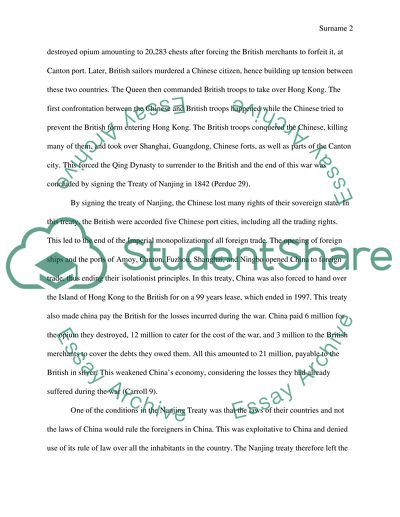Cite this document
(“Effects of the First Opium War on Foreign Relationship in Qing Dynasty Essay”, n.d.)
Effects of the First Opium War on Foreign Relationship in Qing Dynasty Essay. Retrieved from https://studentshare.org/history/1461646-effects-of-the-first-opium-war-on-foreign-relationship-in-qing-dynasty-china
Effects of the First Opium War on Foreign Relationship in Qing Dynasty Essay. Retrieved from https://studentshare.org/history/1461646-effects-of-the-first-opium-war-on-foreign-relationship-in-qing-dynasty-china
(Effects of the First Opium War on Foreign Relationship in Qing Dynasty Essay)
Effects of the First Opium War on Foreign Relationship in Qing Dynasty Essay. https://studentshare.org/history/1461646-effects-of-the-first-opium-war-on-foreign-relationship-in-qing-dynasty-china.
Effects of the First Opium War on Foreign Relationship in Qing Dynasty Essay. https://studentshare.org/history/1461646-effects-of-the-first-opium-war-on-foreign-relationship-in-qing-dynasty-china.
“Effects of the First Opium War on Foreign Relationship in Qing Dynasty Essay”, n.d. https://studentshare.org/history/1461646-effects-of-the-first-opium-war-on-foreign-relationship-in-qing-dynasty-china.


